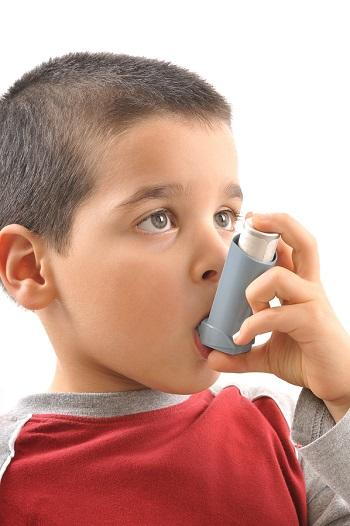 A common condition seen in kids and teens, asthma is a lung condition that causes trouble breathing and shortness of breath. During an attack, the bronchial airways become inflamed and the muscles surrounding them constrict, making breathing difficult. Repeated attacks may cause permanent lung damage and in severe cases can be life-threatening. According to the American Academy of Pediatrics, more than 23 million Americans have the condition and more than one-quarter of them are children under the age of 18.
A common condition seen in kids and teens, asthma is a lung condition that causes trouble breathing and shortness of breath. During an attack, the bronchial airways become inflamed and the muscles surrounding them constrict, making breathing difficult. Repeated attacks may cause permanent lung damage and in severe cases can be life-threatening. According to the American Academy of Pediatrics, more than 23 million Americans have the condition and more than one-quarter of them are children under the age of 18.
Asthma Causes
There are a variety of triggers that can lead to an asthma flare-up or make asthma worse. These vary for every person, but common triggers include:
- Allergens, such as animal dander, pollens, mold and house dust mites
- Environmental irritants, such as cigarettes, dry air, fragrances and air pollution
- Infections, such as pneumonia, sinus infection and viral infections of the nose and throat
- Exercise
- Stress
Does my child have asthma?
According to the Asthma and Allergy Foundation of America, asthma is the most common chronic medical problem in children. Asthma symptoms will vary in frequency and severity, and most children with asthma develop their first symptoms before the age of five. Common signs include:
- Coughing
- Wheezing
- Difficulty breathing
- Tightness in chest
If you think your child may have asthma, contact your pediatrician. They can help you identify the early signs of childhood asthma and provide support for prevention and treatment.
A child may be at a greater risk for having asthma if there is a family history of asthma or if the child has eczema or frequent bouts of chronic lower respiratory problems occurring before the first birthday. Keeping your kids away from cigarette smoke in the home or car, removing pets from the house, paying attention to pollen and air quality forecasts and monitoring exercise are all ways to reduce asthma problems.
The good news is that the majority of asthma cases are only mild, and when the condition is properly managed with medications and extra caution, severe asthma flare-ups can be prevented. Work with your child’s pediatrician to learn more about the condition and ensure your child leads a healthy, normal, active life.








